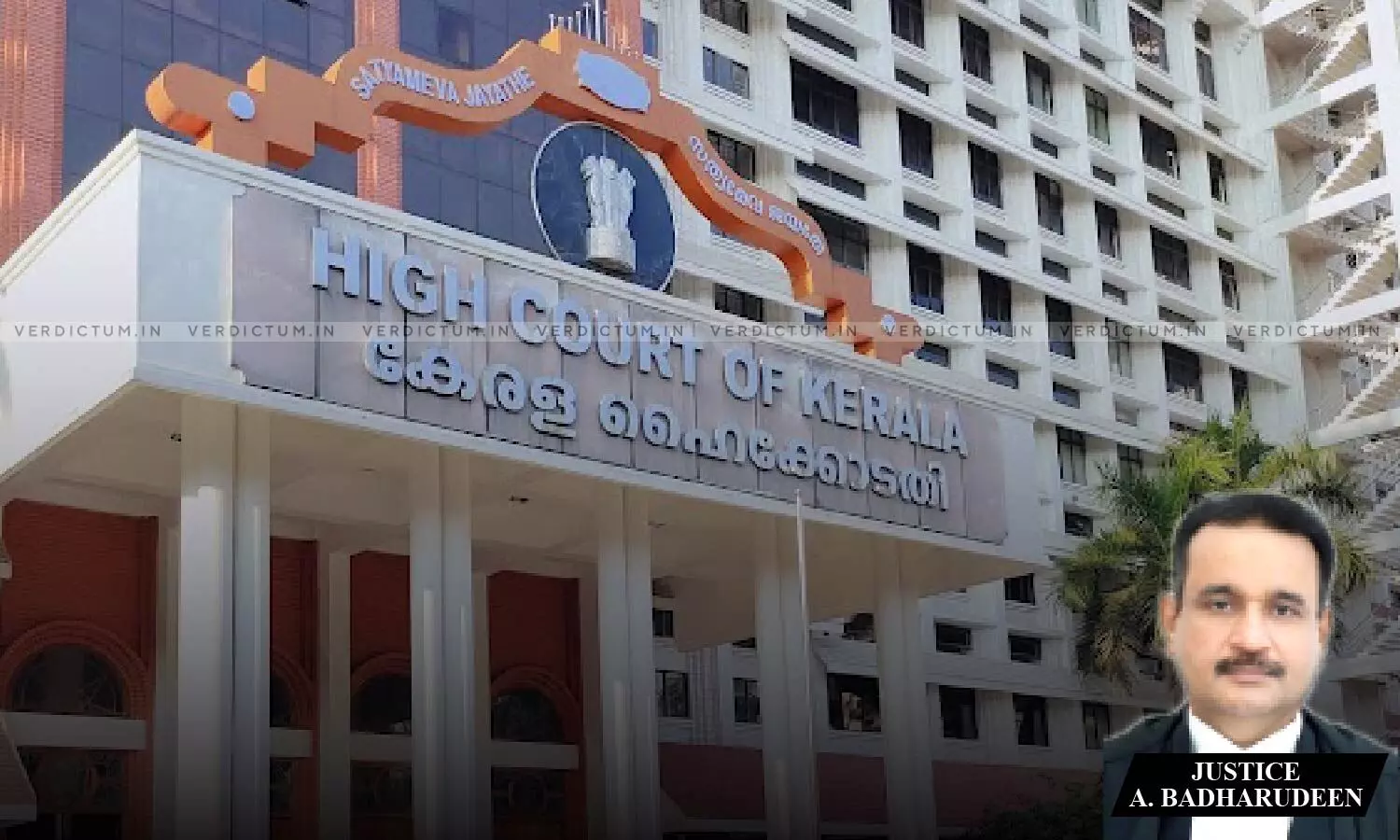
Justice A. Badharudeen, Kerala High Court
Provide Procedure To Prosecute Dissolved Or Struck Off Companies For Offences Committed By It During Its Existence: Kerala High Court Recommends To Parliament
 |
|The Court said that while Section 305 CrPC does not cover the prosecution of dissolved companies, such entities can still be prosecuted for offences committed during their existence, and recommended that the legislature frame appropriate procedural provisions to address this gap.
The Kerala High Court has held that prosecution against a company dissolved under Section 248 of the Companies Act can be sustained by restoring the company to the register or by proceeding through a person responsible for its affairs at the time the alleged offence was committed. The Court refused to interfere with an order summoning a former Director to represent the company in proceedings under the Prevention of Money Laundering Act.
The Single Bench of Justice A. Badharudeen observed, "A company, which committed an offence before its dissolution or struck off, could not be spared without being prosecuted. For the said purpose, the prosecution can get the company restored to existence and follow the procedure under Section 305 of Cr.P.C. or under Section 342 of the BNSS.
The Court added, “If no such restoration is possible, the prosecution can show somebody who was in charge of the company in the Final Report to represent the dissolved company and continue the prosecution proceedings."
Advocate S. Rajeev appeared for the Petitioner, while the Public Prosecutor represented the Respondents.
Brief Facts
The Petitioner, who was formerly a Director of a company arrayed as the first accused in a prosecution under the PMLA and other statutes, challenged an order of the Special Court directing her to represent the company in the proceedings. The prosecution alleged that during the period 2013–2015, approximately 100 Crores were collected from several nursing job aspirants under the guise of recruitment to Kuwait and Dubai. The funds were allegedly transferred abroad through hawala channels.
The offences alleged include Sections 420 r/w 120B IPC, Section 13(2) r/w 13(1)(d) of the Prevention of Corruption Act, Sections 24 r/w 25 of the Emigration Act, and Sections 3 and 4 of the PMLA. The Petitioner was arrayed as the third accused both in her individual capacity and as representative of the first accused company.
The company was struck off from the register of companies under Section 248(5) of the Companies Act in 2021. Relying on this, the Petitioner contended that she could not be compelled to represent a non-existent entity and sought to have her role as representative of the company set aside.
Reasoning of the Court
The Court observed that the company involved in the prosecution was struck off under Section 248(5) of the Companies Act. It noted that in such a situation, the provision that enables a company to be represented in a criminal case, Section 305 of the Code of Criminal Procedure, would not apply. It stated, “Section 305 Cr.P.C. will not apply in this case, since the company cannot act when it got struck off or dissolved.”
The Bench clarified that despite the company being dissolved, its liability for offences committed during its existence does not automatically lapse, observing, “Striking off or dissolution does not erase liability of the company and in such cases the company has to be restored to the register.”
The Court further observed, “A company, which committed an offence before its dissolution or struck off, could not be spared without being prosecuted. For the said purpose, the prosecution can get the company restored to existence and follow the procedure under Section 305 of Cr.P.C. or under Section 342 of the BNSS. If no such restoration is possible, the prosecution can show somebody who was in charge of the company in the Final Report to represent the dissolved company and continue the prosecution proceedings.”
Regarding the provisions of the Prevention of Money Laundering Act, the Court referred to Section 70 and held that corporate criminal liability is not dependent on the current existence of the company. It stated, “Section 70 of PMLA Act does not distinguish a company as existing company or non existing company. What is mentioned therein is ‘company’ simplicitor and thereby, it has to be understood as a legal person, which committed offence, subject to criminal prosecution.”
Upon analysing the existing procedural limitations, the Court made a recommendation for statutory reform, stating, “Though Section 305 of Cr.P.C. is not providing a procedure to prosecute a dissolved or struck off company, it is high time to recommend the Central Legislature to address this question and make necessary provisions in the procedure law, so as to prosecute a dissolved or struck off company for the offences committed by the company during its existence.”
Accordingly, the Court dismissed the petition and held that the prosecution’s decision to array the petitioner, who was a Director of the company, as the representative of the dissolved company was justified in the interest of justice.
Cause Title: Susan Thomas v. State of Kerala & Anr. (Neutral Citation: 2025:KER:54879)
Appearance
Petitioner: Advocates S. Rajeev, V. Vinay, M.S. Aneer, Prerith Philip Joseph, Sarath K.P.
Respondents: Public Prosecutor; Special Public Prosecutor Rajesh A.; Senior Public Prosecutor Rekha S.; Standing Counsel (Enforcement Directorate) Jaishankar V. Nair